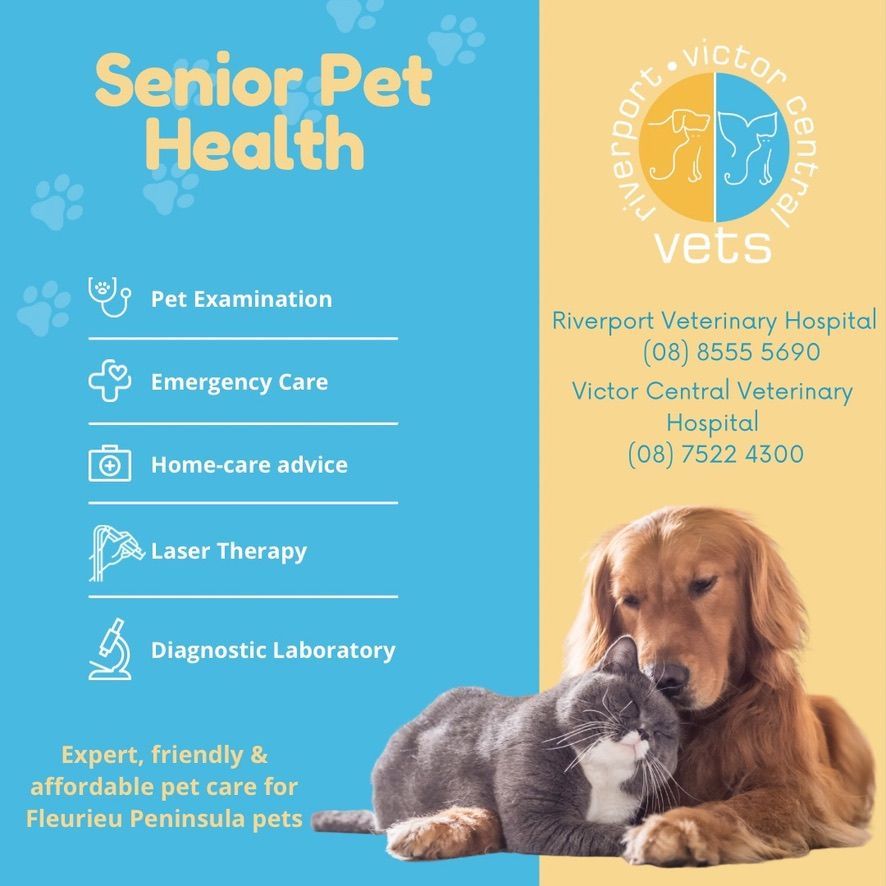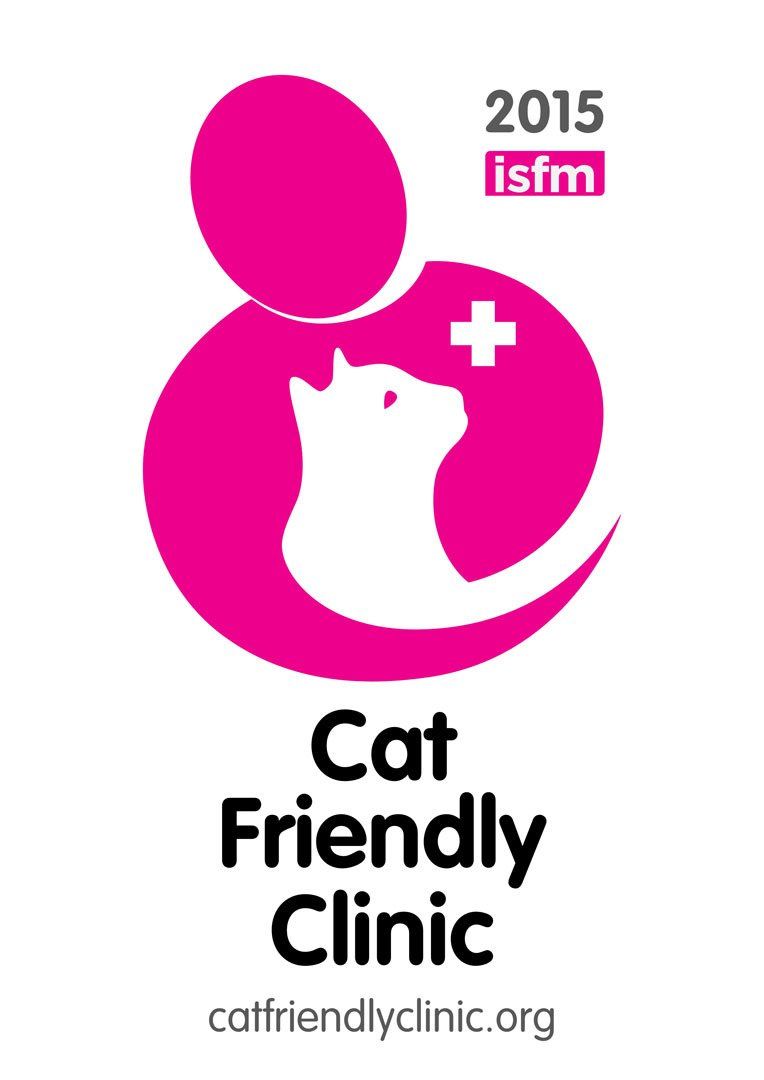Riverport Veterinary Hospital
Victor Central Vet Clinic
We offer Afterpay now too!
Blog
Senior Pets and Arthritis: Nurturing Comfort and Mobility in Their Golden Years
By Dr Tina Blom

Hey there, pet lovers! Let's talk about a common issue that affects our furry friends: arthritis. It's not uncommon for our senior pets to experience discomfort and mobility challenges as they get older (just like me!). As responsible pet owners, it's important to understand the impact of arthritis on our beloved companions and take proactive steps to manage their well-being. In this article, we'll delve into the challenges of arthritis in senior pets and discuss some strategies to support their comfort and quality of life.
Recognizing the Signs:
First things first, let's talk about recognizing the signs of arthritis in our senior pets. Keep an eye out for stiffness, difficulty getting up or lying down, decreased activity levels, limping, and a reluctance to jump or tackle stairs. If you notice any of these signs, it's time to consult with a veterinarian. They're the experts who can help us understand and address arthritis in our furry pals.
Veterinary Evaluation:
While you might see signs of arthritis, your vet might be able to pick them up sooner or determine the extent it’s affecting them. A vet exam involves a thorough physical examination, and they may recommend x-rays or other diagnostic tests to determine the severity of the condition and guide treatment options. Don't worry, your vet will guide you through this process and provide the best advice for your pet.
Pain Management:
Now, let's talk about pain management. Managing pain is crucial for improving the well-being of our senior pets with arthritis. Veterinarians may recommend a number of helpful medications to reduce pain.
• Pain-relief tablets: non-steroidal anti-inflammatory drugs (NSAIDs) or other pain medications specially formulated for pets. Just make sure to follow your vet's instructions carefully and keep an eye out for any adverse reactions. Please do not give your pet human pain relief before consulting a vet! There are some that can be quite dangerous for them.
• Arthritis injections: Pentosan (brand name Zydax) injections have emerged as a popular treatment option for dogs with arthritis and joint-related issues. This medication, given as a series of 4 injections every 6 months, works by promoting joint lubrication and reducing inflammation, providing much-needed relief to our furry friends. Many pet owners have reported positive results and improved mobility in their dogs thanks to this product. This product can be used in cats, but is off-label so discuss with your vet first!
• Beransa: An amazing new injectable monthly pain relief option has just been released with fantastic results. This medication is a new class of monoclonal antibodies, meaning side-effects are minimal, results are great and older patients with other disease (ie. kidney or liver disease) can still have it safely – unlike some of the other pain medications available!
Weight Management:
Weight management is another important aspect to consider. Maintaining a healthy weight is vital for senior pets with arthritis. Excess weight puts extra stress on their joints, making their discomfort and mobility issues worse.
If your pet is struggling to lose those long-term covid-kilos or winter weight, talk to our wonderful support staff who can help you establish an appropriate diet and feeding regimen to help manage and control their weight.
Joint Supplements:
Supplements can be a fantastic tool in your toolbox for managing mild-moderate arthritis. We tend to recommend animal-specific supplements that have multiple ingredients for best effect. Discuss with the veterinarian the appropriate dosage and specific supplements suitable for your pet's needs.
Our favourites are:
• Antinol Rapid – they even have money-back guarantee if your pet refuses to take them, though we have found most dogs and cats love them!
• 4-cyte
• Glyde tablets or powder
Physical Therapy and Rehabilitation:
Just like us, our furry friends can benefit from physical therapy and rehabilitation techniques. You know the old saying ‘use it or lose it!’
Gentle exercise, hydrotherapy, laser therapy, massage, and passive range-of-motion exercises can improve joint mobility, strengthen muscles, and relieve pain in senior pets with arthritis.
Comfortable Environment:
Creating a comfortable environment is key for senior pets with arthritis. Ensure their bedding is supportive and soft, and consider providing ramps or steps to help them navigate elevated surfaces. Non-slip surfaces on floors can also prevent accidental slips and falls, giving your pet added stability.
If your pet is struggling on tiles, we encourage you to lay down rugs between their bed and commonly used areas (ie. the path to outside) so they can get around easier.
To wrap things up, let's remember that arthritis can significantly impact the comfort and mobility of our senior pets. However, by recognizing the signs, seeking veterinary evaluation, implementing pain management strategies, maintaining a healthy weight, utilizing joint supplements, considering physical therapy, and providing a comfortable environment, we can enhance the quality of life for our beloved companions. With proper care and attention, we can help them enjoy their golden years with increased comfort, mobility, and overall well-being. Keep those tails wagging and those purrs going strong!













